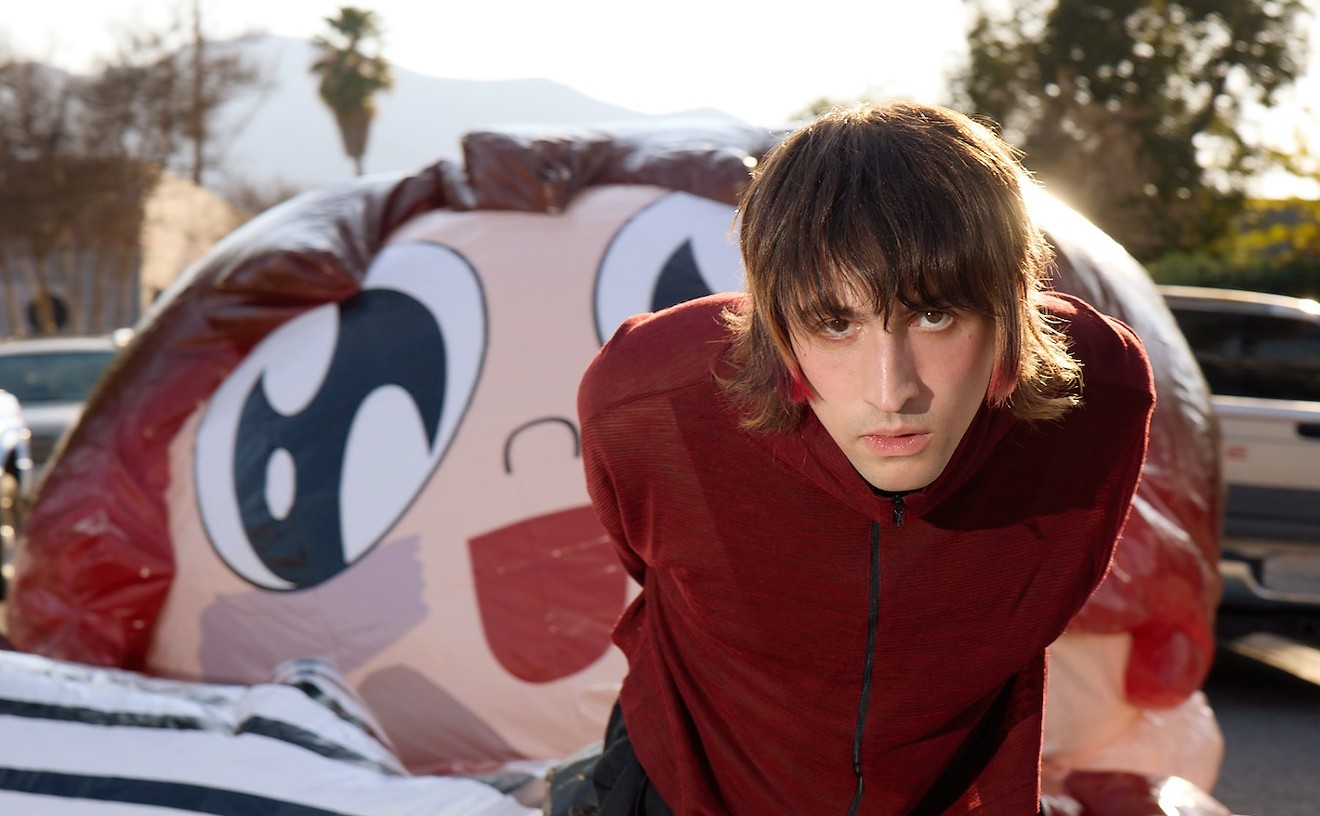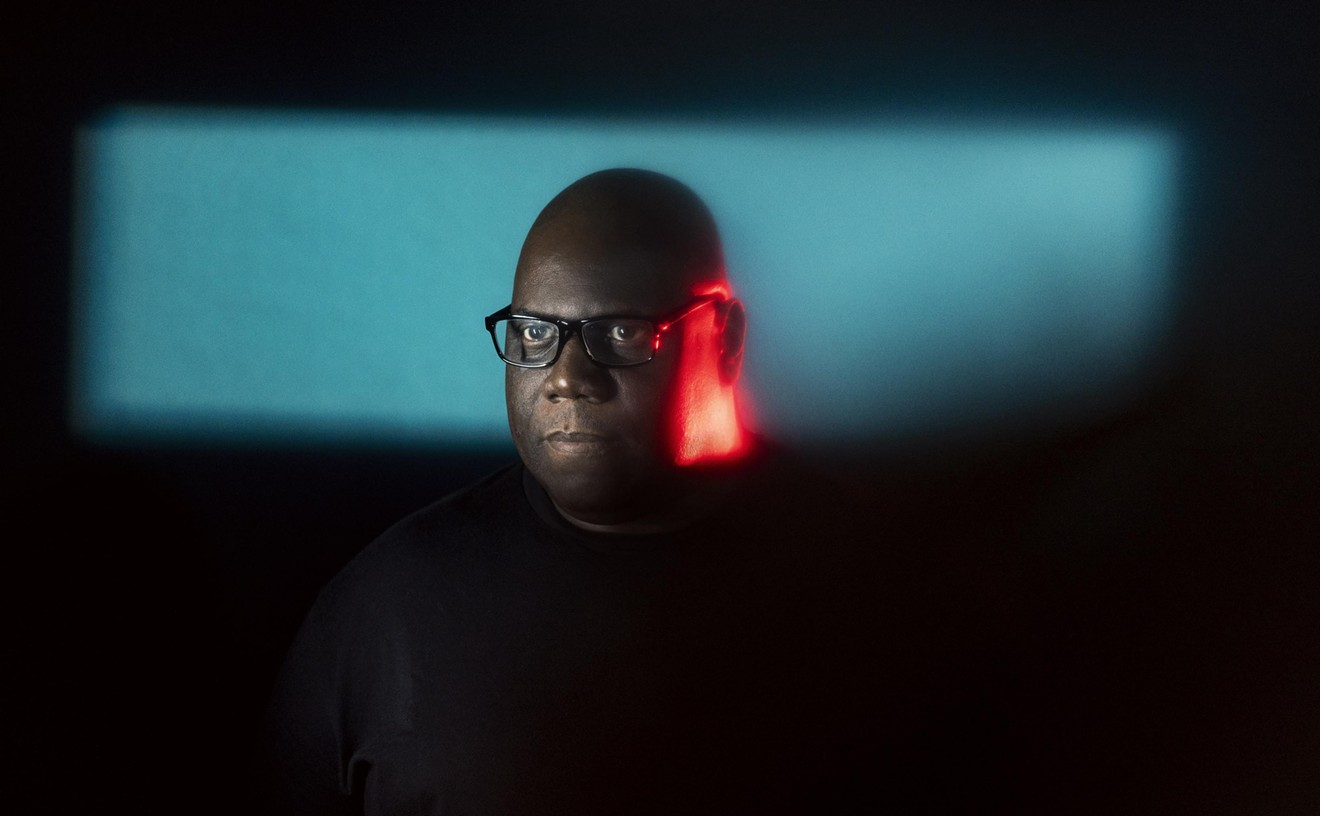(1) Sometime in the hot summer of 1993, three friends and I were sucking down beers at the local punk club in Memphis, Tennessee, a scummy little stinkpit called the Antenna. Between band sets an acquaintance of ours -- a hustler of sorts who fancied himself as something of a one-man, indie-label clearing house -- approached our table with a handful of new arrivals. Avant-garde stuff, mostly, by screwball racketeers like Caroliner and Couch, as well as some pricey import screech from Japan. One single stood out among all the hand-painted and collage-art sleeves: On the front cover was a Xeroxed black-and-white photo of an early incarnation of Nirvana; on the other side was a similarly reproduced shot of a beaming Grand Funk Railroad. We all agreed it was a brilliant juxtaposition, but I don't think any of us really knew why. It just looked good. Along the fold in the sleeve was a paragraph lifted from Lord knows where, with a reference to the need to "write in a new way." Whatever. Below the Nirvana photo was a song title presented in a simple typeface: "Please Don't Come Back from the Moon." Above the Railroad was another: "Nazi USA." The band's name, presented in the same font in the upper right-hand corner, was Harry Pussy. Also brilliant, we decided. In a way, almost too perfect.
"This is a weird one," said the hustler, handing the record -- an issue by the BlackJack label out of Oakland -- to my friend Richard, who eyeballed the front and back covers one more time and offered him four wrinkled one-dollar bills. It was the only copy the hustler had.
A few days later Richard gave me a call. When I asked him about the Harry Pussy record -- how it was, what it sounded like -- my normally verbose friend seemed taken aback, and chose his words carefully. "That," he said with genuine surprise, astonishment, and a little bit of authority, "is one fucked-up record." In other words, he loved it.
In his pick-up truck later that night, on the way to hear the Jon Spencer Blues Explosion, Richard played me a tape of the Harry Pussy single. The two songs, he explained, were divided into halves -- the first cut opened side one and concluded at the end of side two; the second song closed side one and picked up at the beginning of the flip side. The first song featured two guitars droning randomly, mournfully, while drums thumped and cymbals splashed in the background; it made me think of avant-jazz composer Anthony Braxton's convention-shattering work. The second song, though, was a ferocious piece of art-punk stomp, with incessant, pounding drums, furious, staccato guitars, and a yelping vocal submerged deeply into the mix. I don't know if Richard was hearing what I was hearing, but when "Please Don't Come Back from the Moon" ended, I knew he was right: This was one fucked-up record.
(2) It was a cool September night in 1994 and Harry Pussy was in Shreveport, Louisiana, to play an opening set for the Demolition Doll Rods (a garage-rock group from Detroit) and a bunch of San Francisco goofballs who performed under the name Three Day Stubble. I was working in that tiny, sleepy burg as an entertainment writer and general-assignment reporter at The Times newspaper. Though I had been in Shreveport barely three months, I was already very lonely and very homesick. The underground music scene was almost nonexistent; the few bands around had not yet shaken their Pearl Jam fixations, and the city lacked even one store that carried independent-label releases. The best it could do for a punk club was the unfortunately named Cellblock, a former gay bar where a local black-clad guy named Drac (yes, as in Dracula) booked goth and industrial-dance shows. This was where Harry Pussy would make its northwest Louisiana live debut. When I wrote a blurb in the newspaper to plug the show, my editors eighty-sixed the reference to Harry Pussy.
By this time I was keenly aware of Harry Pussy, and if I hadn't figured out exactly what they were doing, I knew I liked it. An eponymous album had been released on Siltbreeze since I first encountered the BlackJack single, and the band was featured in a then-recent issue of Bananafish, a fringe-music rag based in San Francisco and a bible of sorts for aficionados of experimental noise and aural terrorism. I had seen a clip of an HP live performance played by Thurston Moore during his guest stint as an MTV VJ. I learned through Bananafish that there were two self-released singles preceding the one I first heard in Memphis; there was also an intriguing double-single on the New York-based Audible Hiss label, with four versions of the song "Zero de Conduite." As is typical in the postpunk underworld of small pressings and limited distribution, all three had gone out of print before I had even heard of them. But on the basis of the album and that BlackJack single, I had sufficient material for the building of an obsession.
I wish I could say that I was amazed that a band like Harry Pussy existed in an unlikely locale such as South Florida, but I wasn't. I was more amazed that they had been booked into the Cellblock. When the trio took the unlit stage, about fifteen or so people had gathered on the dance floor, staring curiously at the band. Less than a minute into their set -- as drummer Adris Hoyos and guitarists Bill Orcutt and Mark Feehan bashed furiously at their instruments, creating a dangerously loud racket -- the audience scattered. A few people laughed nervously after taking stools at the bar, but most took refuge out in the parking lot. After the first song, Orcutt said something like, "We're Harry Pussy from Miami," to which a liquored-up Southern boy in back shouted, "I'll take a hairy pussy from anywhere." Orcutt returned to the mike: "Welcome to Louisiana."
The band played for twelve or so minutes. The volume was painful. I drove home that night thinking it was the greatest aural spectacle I'd ever witnessed.
I think I will forever associate the music of Harry Pussy with the year or so I spent in Shreveport. It was a time of frustration, of displacement and isolation. At The Times I was unable to write anything close to what I wanted, and was unable to soften that blow in my usual fashion -- namely, to hit the local record stores and immerse myself in new music. Most of the stuff I bought while living there was through mail-order companies such as Ajax and Drunken Fish. Nearly all of it was harsh, noisy, grating -- the dense sound-collage creations of A Handful of Dust, the grinding rumble and distortion of the Dead C., and the dope-smoking fuzzball improv of Bardo Pond and A Temple of Bon Matin.
But it was Harry Pussy that spent the most time on my turntable. Their music for me was sheer catharsis, an ideal soundtrack for a mental unraveling, a means of emotional release like nothing I had heard since my preteen exposure to the Sex Pistols and the Clash. Harry Pussy's music was more than punk rock. I heard in it a sense of daring and exploration that connected it in my mind and ears to the free-jazz cacophony of Cecil Taylor; to the early industrial roar of White House; to the chaotic shriek and alternate guitar tunings of Glenn Branca, early Sonic Youth, and the New York No Wavers who preceded them; to the feedback howl of Masonna and Merzbow; and even the playful noise of Boredoms (although there was nothing silly in Harry Pussy's noise).
When it looked like I would be moving from Shreveport to Miami, I was thrilled at the thought of leaving behind the depression and claustrophobia of small-town life. But I think I was just as thrilled at the thought of seeing Harry Pussy again.
And now Harry Pussy is no more. Or rather, it won't be after May 4, when the band takes the stage at Churchill's for what they claim will be the last time. (There's talk of a European tour before it's all officially kaput, but the Churchill's gig will be their parting local shot.) Harry Pussy is currently on a U.S. tour in support of its third album, an untitled, self-released collection issued for now on vinyl; it is the first waxing featuring new guitarist Dan Hosker (Holy Terrors), who replaced Feehan last year. A flu-bitten Orcutt, on the phone last week during a tour stop in Boston, explained the Harry Pussy breakup in typically succinct fashion: "We've been playing together five years. It feels like it's been long enough."
Maybe, but given the aural evidence on the new album, Harry Pussy has chosen to hang it up at their creative apex. Without compromising their eccentricities -- which range from Orcutt's inventive guitar playing to Hoyos's scary, wailing vocals -- the band is working closer to traditional compositional forms than ever before. An untitled song near the end of side one has a gloriously loopy riff that sounds for all the world like it was picked up from Captain Beefheart's Trout Mask Replica; the funk-splattered "Chuck!" proves once and for all that Harry Pussy is -- was -- a groove band; and "Drop the Bomb" and "Sex Problem" are almost straightforward punk songs powered by, rather than simply enhanced by, Hoyos's ranting.
For a lot of people in these parts the dissolution of Harry Pussy probably won't mean much. I don't think I've spoken to more than ten people down here who gave a damn about Harry Pussy's music or the impact it had on a handful of noise-obsessed writers and record-buyers. And considering the infrequency of their club gigs around town, Harry Pussy's absence won't be felt at the few places here that would have them. Soon, though, they will be gone. Living in Miami just won't be the same.
Harry Pussy performs Sunday, May 4, at Churchill's Hideaway, 5501 NE 2nd Ave; 757-1807. The 18-and-over show starts at 9:00 p.m. Cover charge is $3.










